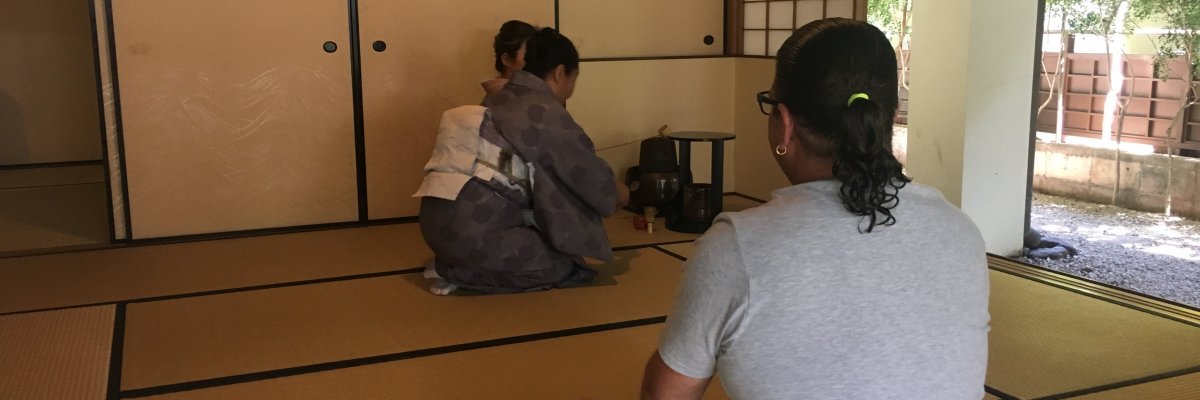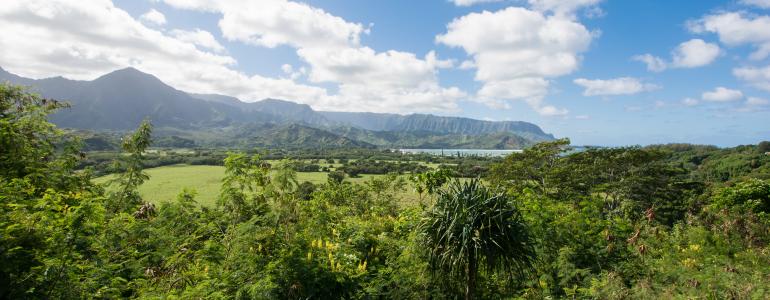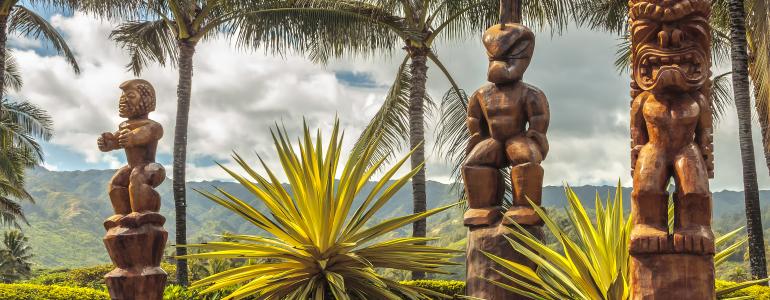Ancient Japanese Culture in Waikiki
Waikiki. Love it. Hate it. Despite the things you may hear or feel about Waikiki, it's a classic Hawaiian destination that offers big-city fun and iconic views along the shores of Waikiki Beach. Few sights are more famous and synonymous with Hawaii than that of Diamond Head, crowning the arc of Waikiki Bay.
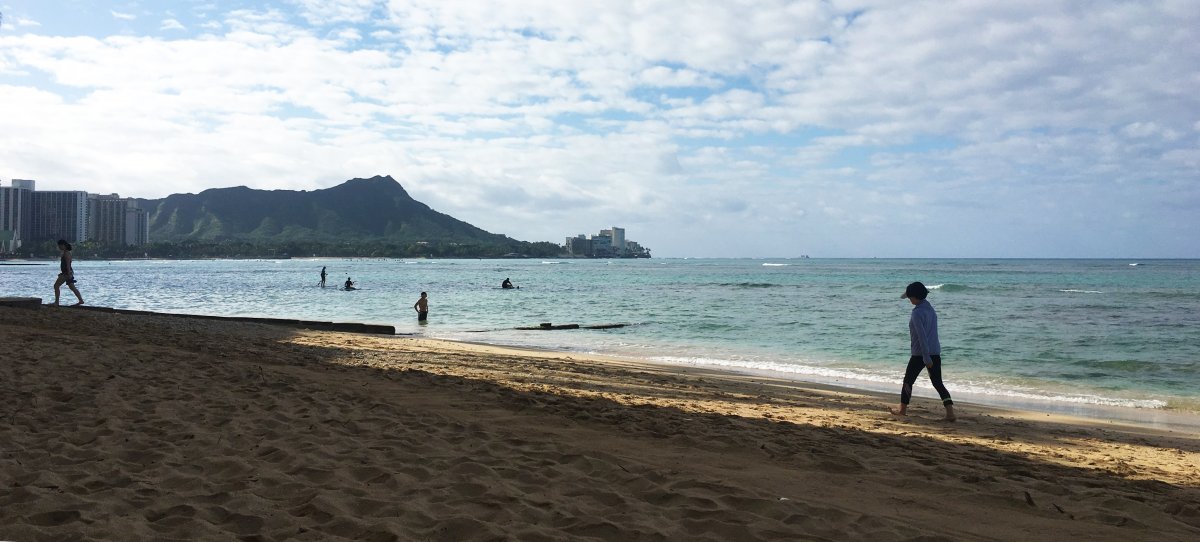
This bustling tourist center is, in fact, an ancient leisure destination that was once the playground of Hawaiian royalty. Later, it was home to the burgeoning post-war Hawaii tourism boom, with large, now iconic, hotels filling the shorefront.
Today, among the high-end retailers on Kalakaua Avenue and Cheesecake Factory in Waikiki, you can still find cultural treasures: one of them is the Urasenke Foundation.
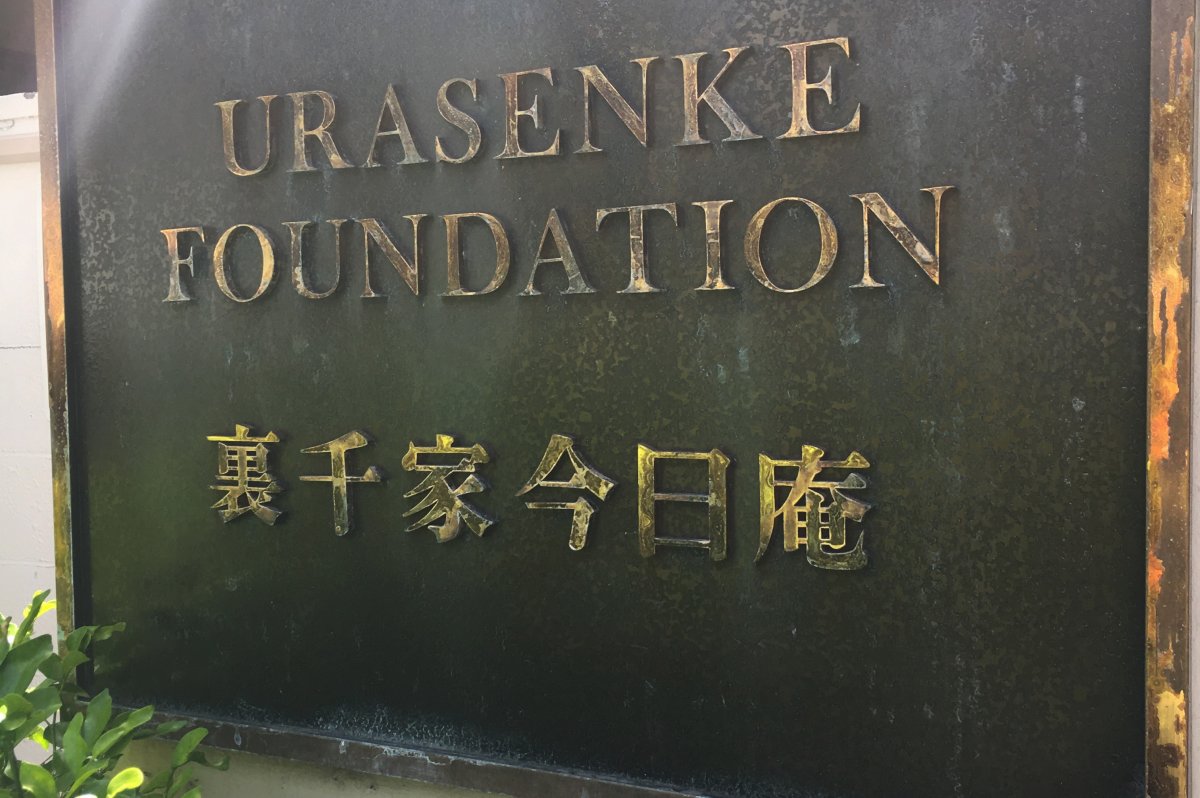
Tucked away in an unassuming building in Waikiki, the Urasenke Foundation is an international ambassador of Chado - The Way of Tea, known to many in the West simply as the Japanese Tea Ceremony.
The spirit of Chado is embodied by these concepts: Wa – Harmony; Kei – Respect; Sei – Purity; and Jaku – Tranquility.
A Unique Cultural Encounter
The Foundation's presence here speaks as much to the profound cultural influence that the Japanese-American community has had on Hawaii as to the state's proximity to Japan. If you are looking for a family-friendly cultural experience, the Urasenke Foundation offers an interactive, educational encounter that is convenient, short, and experiential – your kids will remember their tea ceremony for years to come!
"Wa - Harmony: To live in harmony with each other, nature, and with our surroundings."
The buildings home to the Urasenke Foundation are low-rise, mid-century structures that were once common in the area. Now, especially close to the shore, they are relatively rare and seem like holdouts in a manically gentrified and skyward-bound cluster of luxury hotels and condos.
According to the materials the Foundation provides its visitors, the Japanese tea ceremony has its roots in twelfth-century Japan. Zen monks returning from study abroad brought the tradition of matcha tea, a form of green powdered tea, back to Japan.
The Urasenke Foundation traces its roots back to Sen Rikyu, a tea master who lived in 16th-century Japan. The family's estate in old Kyoto still exists today and contains ancient tea rooms dating back 350 years. Japan considers the Urasenke estate a cultural treasure.
The Foundation maintains outposts in several cities outside of Japan, including Honolulu. The Waikiki branch is small and seems to be under the radar of most visitors. On this recent visit, there were just two guests enjoying the experience, which made it feel like we had been invited into a private home.
What’s a Visit to Urasenke Waikiki Like?
First off, the Foundation staff asks for a modest donation.
Before guests sip any tea, they are given a bit of history and context. Guests view a video that explains the history of Chado and the concepts embodied in the ceremony.
"Kei - Respect: To respect each other and recognize our mutual dependence upon one another."
What is so striking and beautiful about the tea ceremony is that every action, every symbol, and every feature of the environment is carefully scripted and filled with significance.
As a novice, it seems as though this ceremony is about being present and peacefully conscious, appreciating your environment, your host and your fellow guests.
Entering the Japanese Tea Room
When the video finishes, you are led outside down a path to the tea room. The room is open to a small garden, and stepping stones lead to the entry doorway, very much in the Japanese garden tradition.

One removes one's shoes and steps onto the tatami mats. Per the video, guests appreciate the Tokonoma, an alcove that contains a hanging scroll of calligraphy or perhaps an arrangement of flowers. Guests learn that the decorations in the tea room will change to reflect the season.
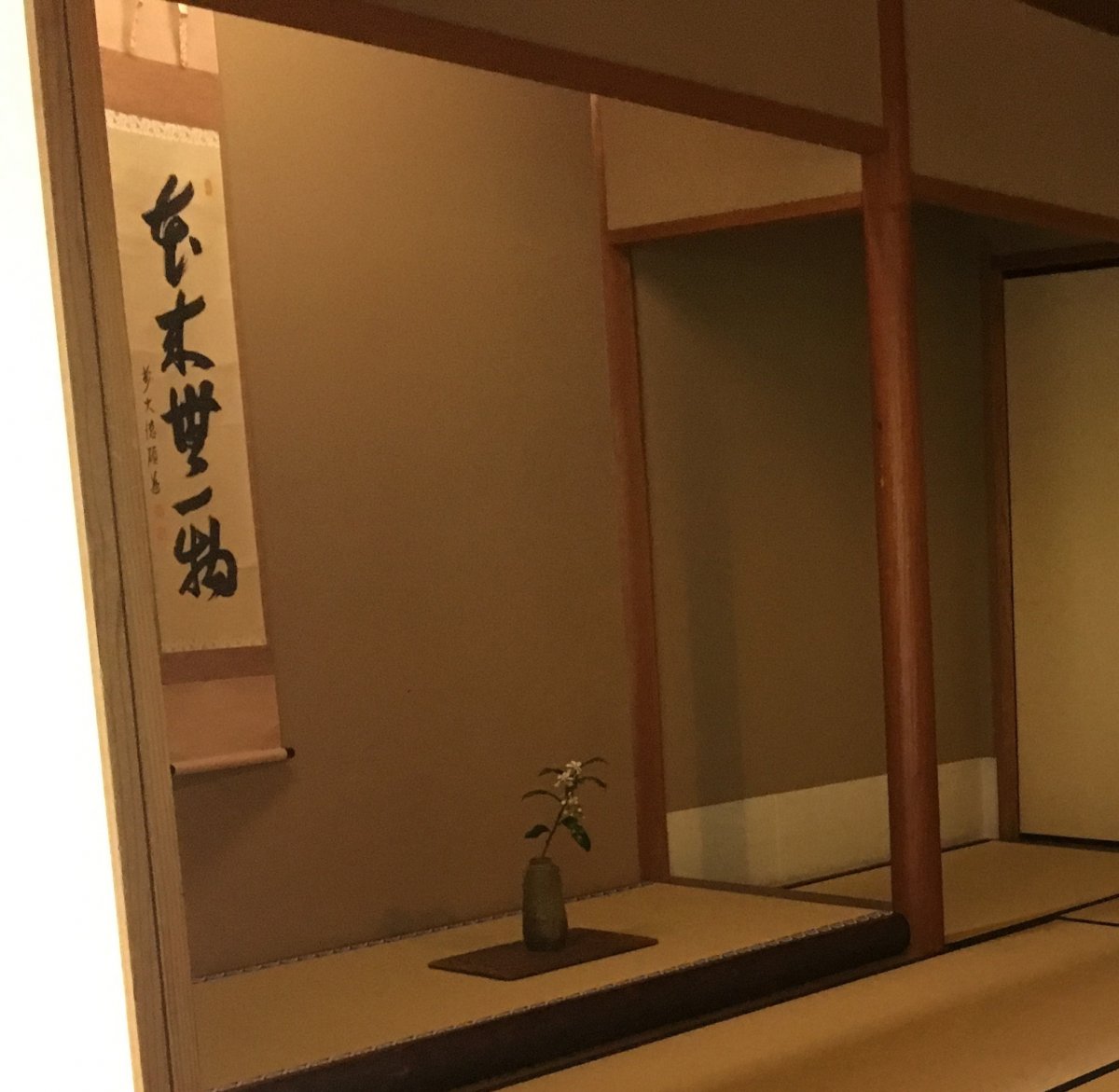
Preparation of Tea
Once you are seated on the mats (you are not required to sit in the Japanese style if you are not accustomed to it), the host enters the room. She is wearing traditional kimono, and she bows in reverence – an accommodation that is returned by guests.
"Sei - Purity: To strive for purity in both the outer, physical sense as well as the inner, spiritual sense."
She is accompanied by an assistant who acts as a guide and translator, explaining to the guests what the host is doing and the significance of each nuanced move.
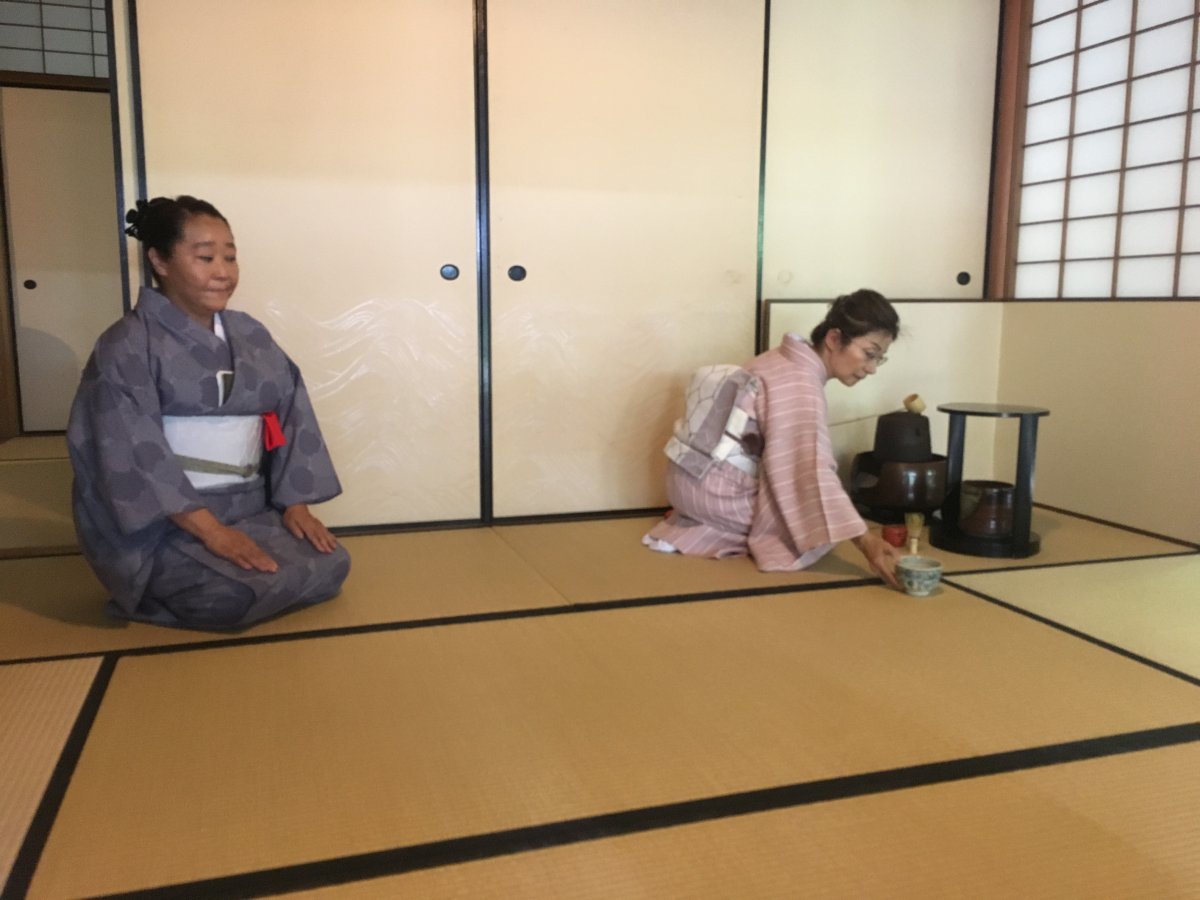
As we attended in May, they had just changed the nature of their tea brazier. During the winter months, a tatami mat in the center of room is removed and a sunken hearth is placed in the space, below the floor. The summer brazier, pictured above, sits on top of the mats towards the back of the room.
The first tea we were given was a thick, bitter tea. Guests traditionally bow to the host to thank them for the tea. Then, one is supposed to place the tea in the left hand and steady it with the right, turning the bowl so that one does not sip tea from the front.
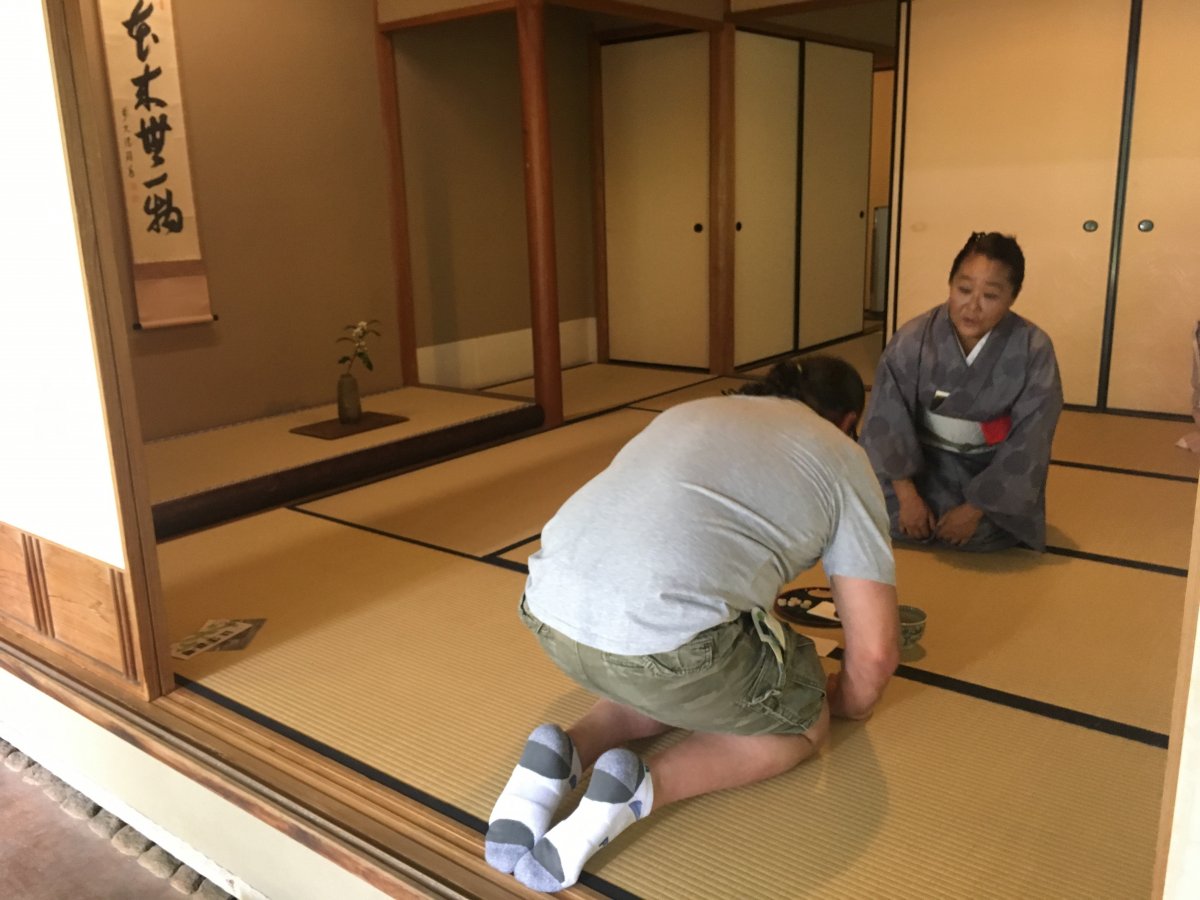
This turning of the bowl is a subtle reflection of the humility that the ceremony evokes among its participants. Once finished, you bow once more.
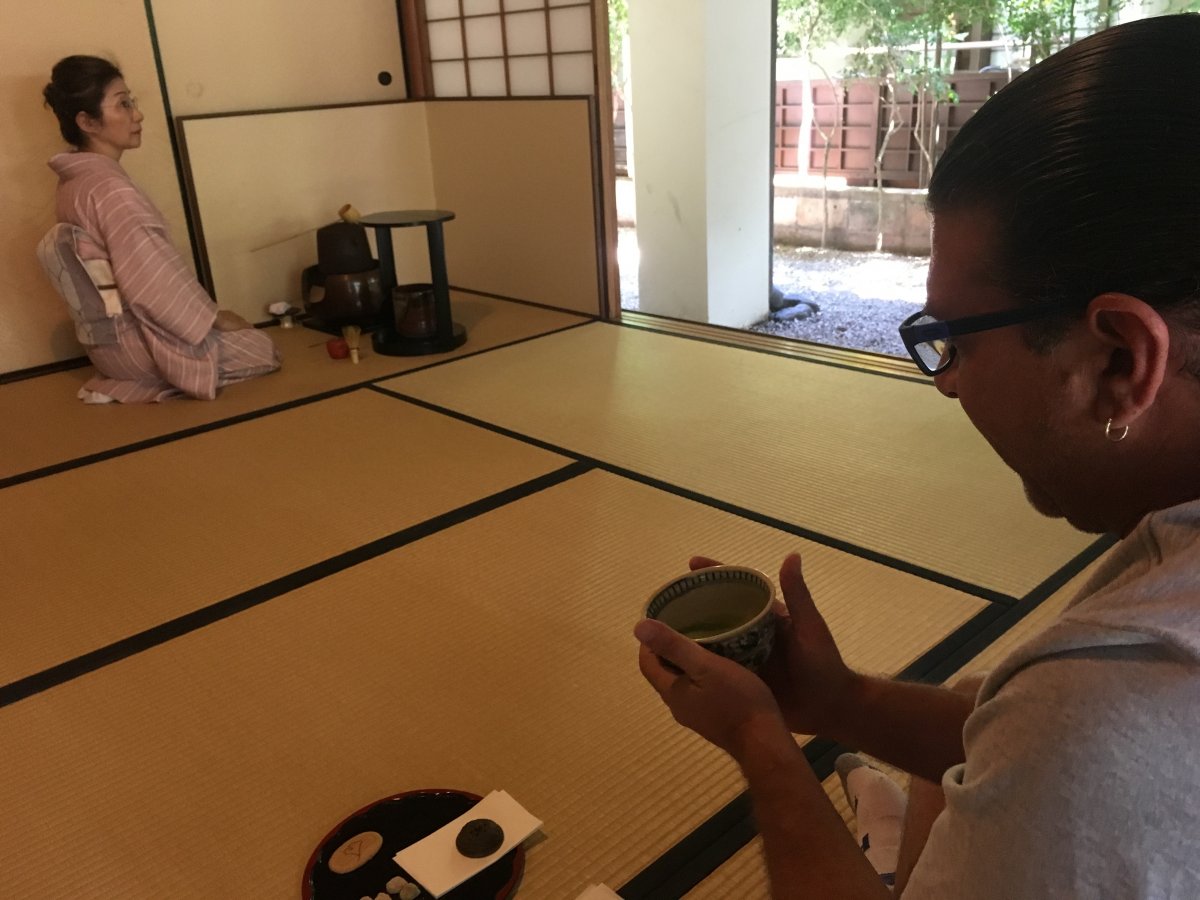
A second, thinner version of tea is then served. These teas are just a few sips worth, not the large mugs that we are used to sipping on chilly nights.
Guests are also given special biscuits that come from Kyoto to accompany their tea. In the full traditional ceremony, one learns that a meal is also presented in a highly stylized fashion. Think exquisitely prepared bento boxes with artfully presented culinary treats.
"Jaku - Tranquility: To have the mind that is always serene. To find a calmness and steadiness of mind."
The entire experience lasts around 50 minutes, so it’s not a huge time commitment for visitors looking to the get out to the beach or tour around the island of Oahu.
The Foundation holds presentations on certain days of the week. You can confirm the schedule by emailing the Urasenke Foundation when you plan your visit.
The Urasenke Foundation in Oahu is located at the following address:
Urasenke Hawaii
245 Saratoga Road
Honolulu HI 96815
Tel: (808) 923-1057
Enjoy this little treasure, and start your day on Waikiki Beach with a cultural excursion that will stay with you forever and may even inspire some younger ones to explore Japanese culture further.
by John Di Rienzo

